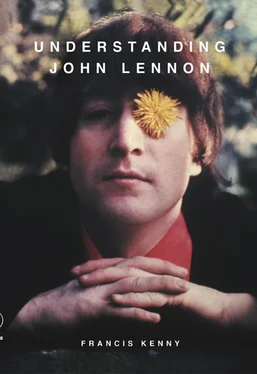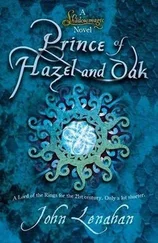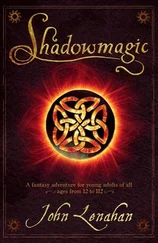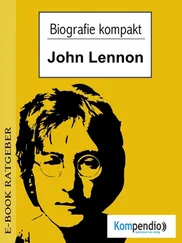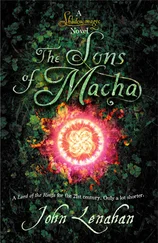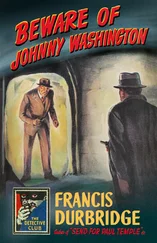Mrs Bushell, a neighbour who shared a common garden fence, would have an occasional chat, but in the ten years as her neighbour, Mimi was never invited in for a cup of tea. Mrs Bushell described her as ‘unfriendly’. According to Mrs Bushell, the neighbours’ views of Mimi and George were that they were merely ‘working-class folk’, a view that was reaffirmed by George’s job as night watchman in a factory. What Mimi needed was a remedy to this outcast situation. She believed she had found it in the shape of John.
Mimi would always maintain that she needed to bring John up due to the need to save the boy from the shameless lifestyle his mother was leading. Indeed, she would later refer to Mendips as the ‘House of Correction’ and her sister and Bobby’s house as the ‘House of Sin’. Mimi had a penchant for theatrics, but behind this hyperbole was the cruel and stark assumption that John’s mother was nothing short of a ‘fallen woman’ and his father a ‘good for nothing’. John was constantly told by Mimi he was wanted by her, but not by his mother, and that she was ‘the parent of last resort’. She deserved John .
John’s move to Mendips should have provided him with the stability that was missing from his life with Julia and Freddie. Instead, he was faced with a bitter matriarch who tried to mould him in her own image. This would cause internal conflicts that would last John a lifetime. At her home in Toxteth and, to a lesser extent, Newcastle Road, it was enough for Mimi to play the part of acting like ‘a person of quality’. Her place in Woolton Convalescent Home helped support her view that she was a solid member of the middle class. With the addition of John, she was able to demonstrate to ‘those that mattered’ in the Woolton community that she was committed to traditional family values by taking care of her nephew and removing him from the influence of his dysfunctional parents. Mimi’s view that you only get out of life what you deserve was motivated by what she wanted and by what she didn’t want to be. She had lived in the inner city and knew its problems of poverty and poor housing – she wanted better. She was not a subscriber to the view of George Bernard Shaw that ‘if you don’t get what you like, like what you get’. Indeed, she would constantly refer to Paul and George as ‘those scruffs’. Anyone talking in a local Scouse accent was seen as being on the lowest social rungs: ‘I had high hopes for [him] and I knew you didn’t get anywhere if you spoke like a ruffian’, remarked Mimi of John. Emphasising her view on the role of Queen’s English, she revealed:
I remember once he came home from town on the bus and he’d heard these Liverpudlians talking to each other – Scouse, you know. And he was shocked he couldn’t understand what they were talking about … I told him he should avoid people like that. He was a country boy … he would never meet [them] except if anyone came to the house to mend something. 18
Some insightful points come out of Mimi’s comments. Firstly, her reference to ‘these Liverpudlians’ suggests that Mimi considered herself and John as being outside of this culture. Then there’s the label of ‘country boy’ for John. This conjures up images of John with straw in his hair taking the family cow to Lime Street Market and coming back with five magic beans. The top and bottom of Mimi’s problems were that she was a puritanical snob and wasn’t a contented person. Despite the husband and the semi-detached house and the child, she wasn’t acknowledged by those from whom she most wanted acceptance – her suburban community, her neighbours. Whatever ideals she had towards being ‘a lady of the manor’ at Mendips slowly dissipated as the real middle classes ignored the upstart from Liverpool 8 who was married to a drunken ex-milkman. The doctors and teachers that Mimi so desperately wanted validation from turned their backs on her the moment she started her life as a squatter. Her visions of an idyllic middle-class life were finished before they had even begun.
John’s arrival at his new school halfway through the school year only served to further distance Mimi. The introduction of John was intended to provide Mimi with the much-needed legitimacy of family values, her entry into the network of parents waiting outside the school gates of the infant and junior schools. But these friendships had already been formed at the school, starting early in September. The arrival of Mimi and John did not take place until April – a not insignificant gap – and with Mimi at this time being 38 years old, she was too old to be seen as a credible friend and confidante of those mothers who were a decade or so younger than her. The next ten years of picking up John consisted of curt nods to other mothers along with a doorman’s smile, which hid a murderous desire for a lightning bolt to come down and strike this gaggle of unfriendly modern mums. George would fare no better. Being nearly 50 years old, he was in the ‘grandparent range’ and his appearance at the school gates with his shock of white hair and security guard uniform would only confirm what the mothers at the school gate would have already known – too old, not our ‘type’. In the terminology of the day, Mimi was in a pickle. John was no use to her and she couldn’t give him back without making a complete and utter fool of herself, so she was left with having to grin and bear it.
chapter 5
1950–55
Mendips
THE WARTIME age of austerity was coming to a close, employment and consumerism were on the march, and the Port of Liverpool was buoyant in its trade with the Americas and the Empire. The port shipped in and out more cargo than the next-largest eight ports combined. The city’s population stood at nearly 800,000, almost half of these crammed into the dockland zones and the city centre. The housing stock within the city was as bad as ever. The rapid rise of the port in the 19th century had left in its wake a swathe of jerry-built slum housing – a legacy of heavy immigration.
In the early post-war years, the Ministry of Housing identified 26,959 unfit houses in Liverpool, with conditions deemed so bad that they were marked for demolition. A further 61,724 required major repairs, making a total of 88,683 substandard dwellings. This, together with demobilisation and the consequent return home of thousands of servicemen, a high birth rate caused by the post-war ‘baby boom’ and a scarcity of construction materials all contributed to a severe post-war housing shortage. In 1949, John’s mother and Bobby (who now had two daughters, Julia and Jackie) were more than fortunate to gain a three-bedroom, front and back garden semi of their own, just a few miles from Newcastle Road. After Pop had died in 1949, the owner of Newcastle Road offered Julia and Bobby the opportunity to buy the house. Financially, the couple weren’t in a position to take up the offer. Instead, they were provided with a new home by Liverpool Corporation in the Allerton area of the city at 1 Blomfield Road.
As post-war Britain progressed into the 1950s, it reverted to Tory rule, with Winston Churchill becoming Prime Minister once again. The developing Cold War’s blanket of suspicion and fear divided many in Britain into those who supported the established order and hoped to maintain Britain’s colonies, and those against, who were deemed unpatriotic. This divide slowly grew, and as a further blow to national pride came the realisation that there were now two world superpowers, and Britain wasn’t one of them. The cultural impact of such radical changes led to a reaffirmed belief in and commitment to pre-war family values. Any behaviour seen to be challenging the conventional wisdom of the established order, especially by the young, was anathema to those in authority and to trenchant parents alike – those brought up on a diet of King, Empire and Class. American influence on British culture, meanwhile, was deemed vulgar and shallow.
Читать дальше
